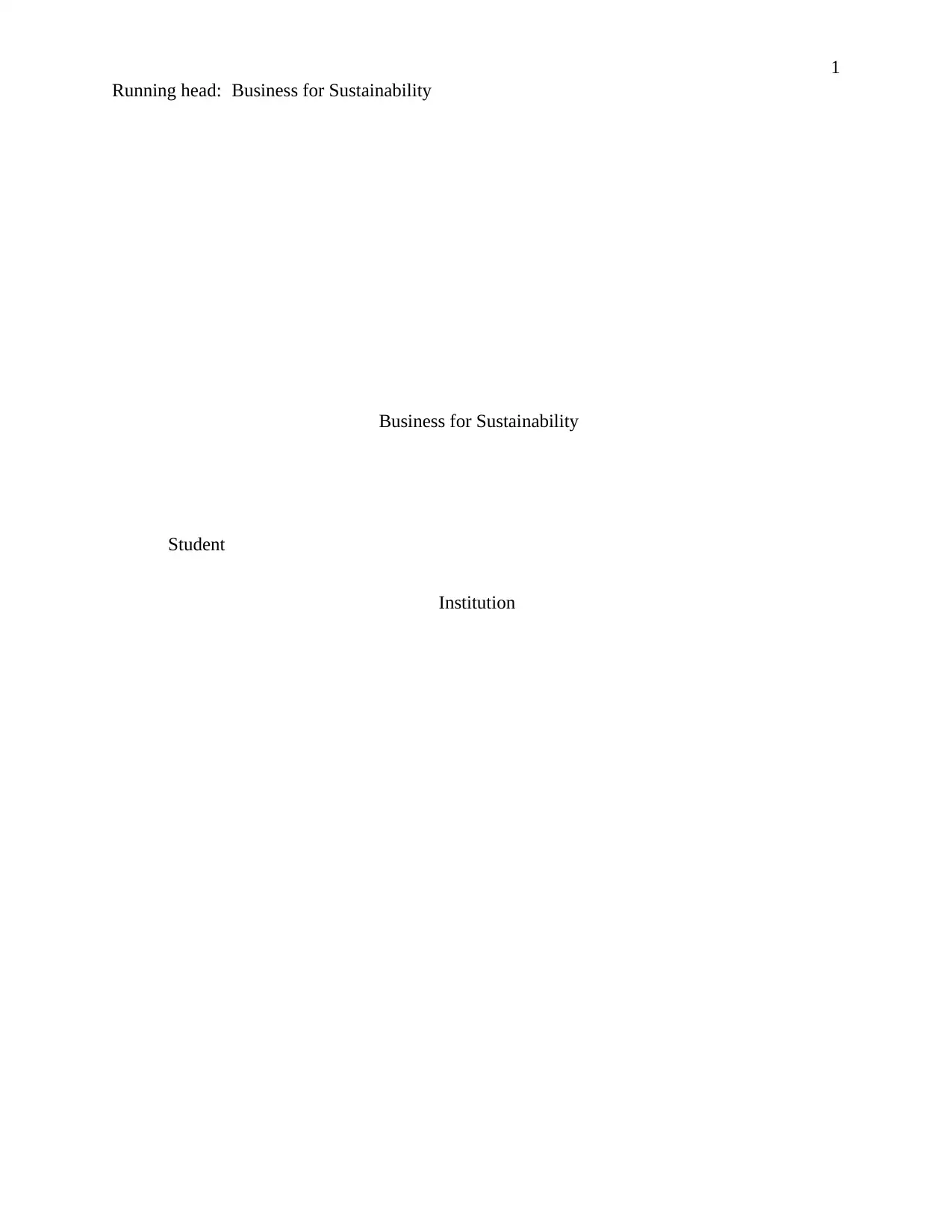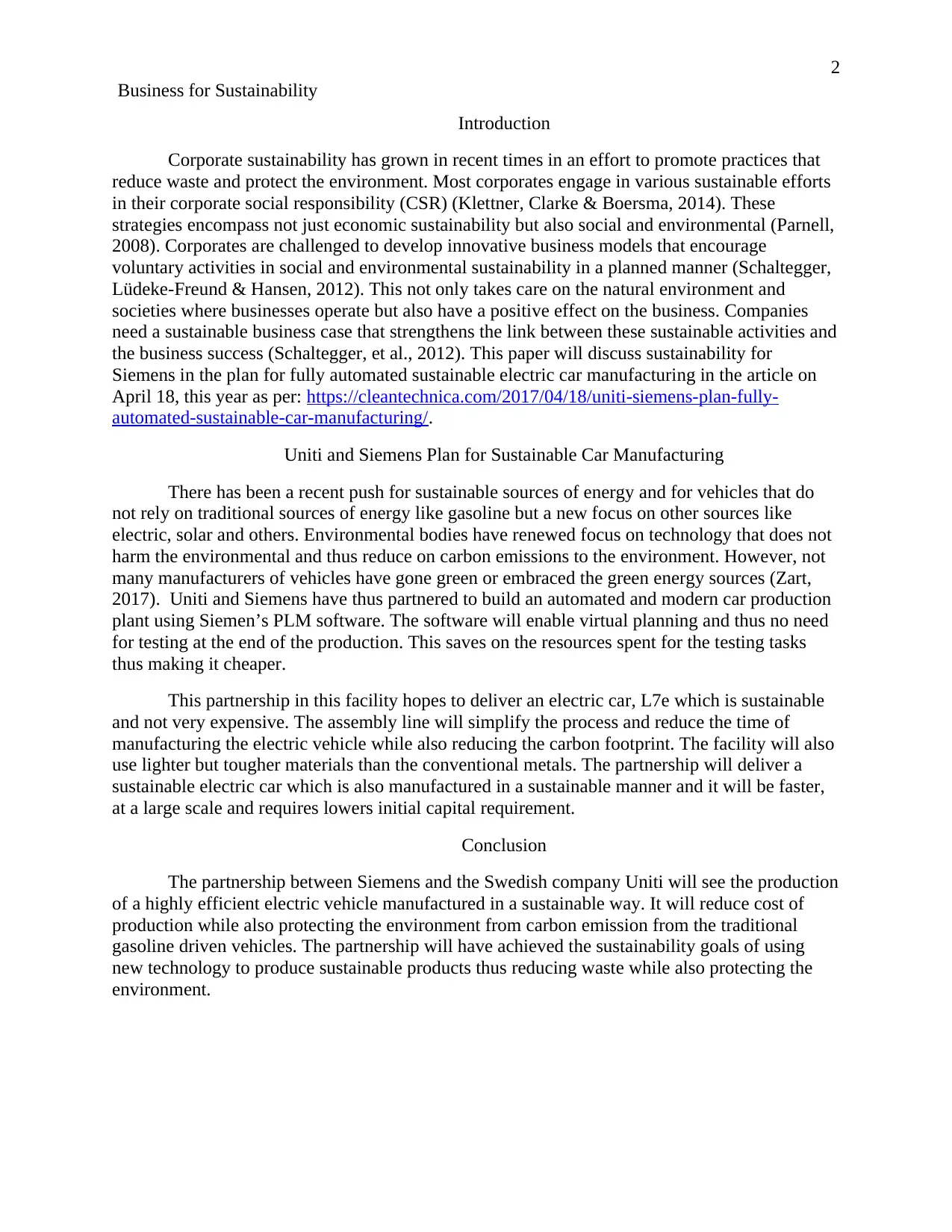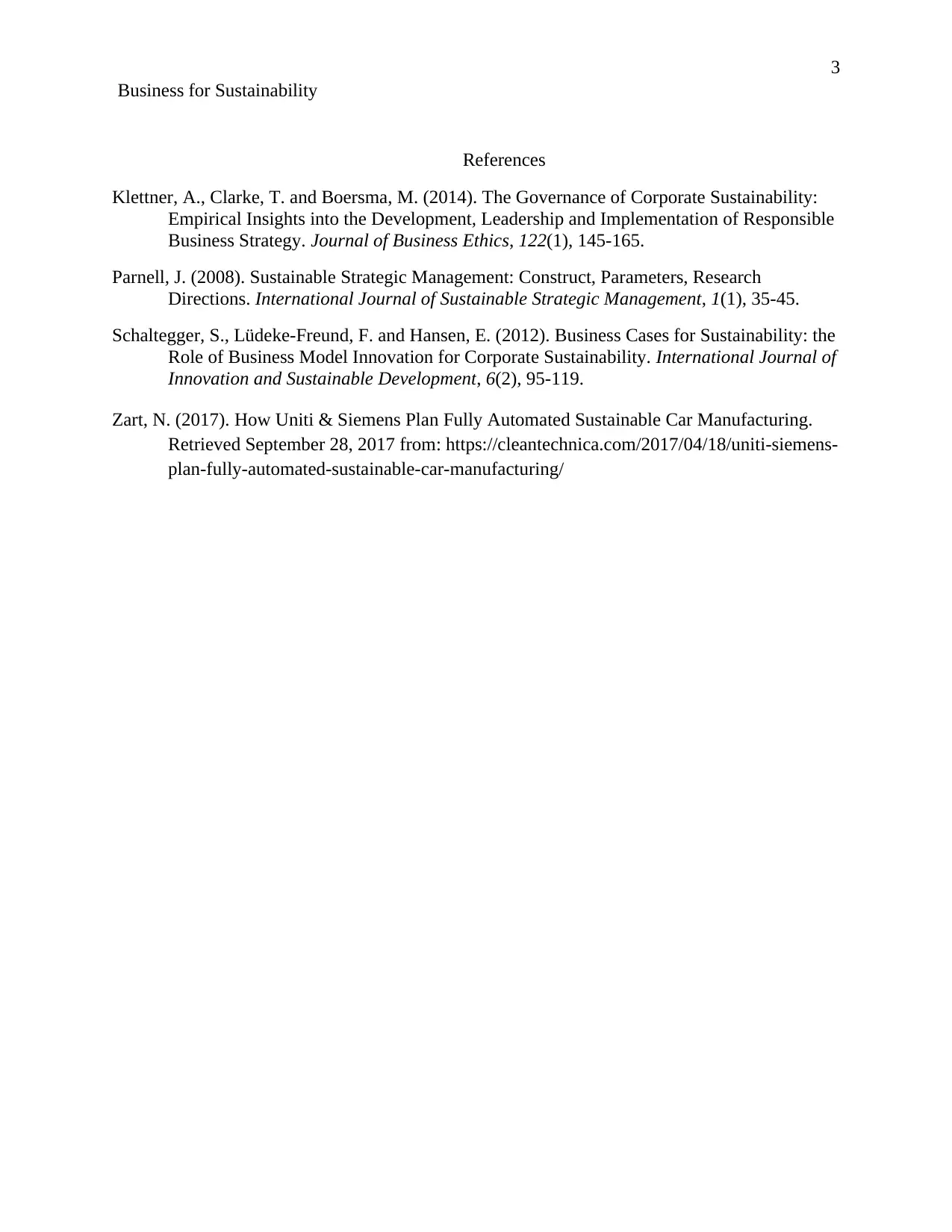Corporate Sustainability: Analysis of Siemens and Uniti Partnership
VerifiedAdded on 2020/04/01
|3
|661
|31
Report
AI Summary
This report examines the partnership between Siemens and Uniti, focusing on their innovative approach to sustainable electric car manufacturing. It highlights how the collaboration utilizes Siemens' PLM software for virtual planning, reducing resource consumption and costs. The report details the production of the L7e electric car, emphasizing its sustainability and cost-effectiveness. The assembly line simplifies the manufacturing process, minimizes the carbon footprint, and uses lighter, tougher materials. The analysis underscores the partnership's achievement of sustainability goals by employing new technology to produce sustainable products, thereby reducing waste and protecting the environment from carbon emissions associated with traditional gasoline-powered vehicles. The partnership aims to deliver a faster, large-scale, and cost-effective sustainable electric car.
1 out of 3







![[object Object]](/_next/static/media/star-bottom.7253800d.svg)